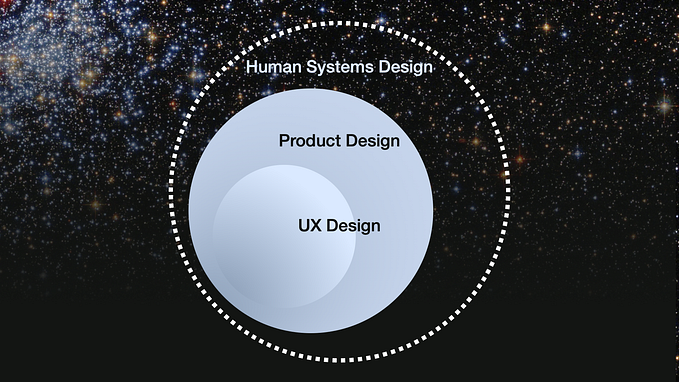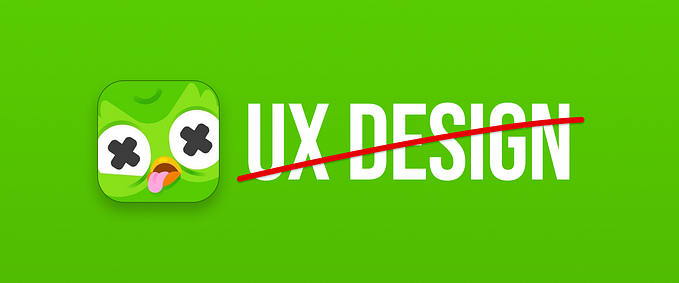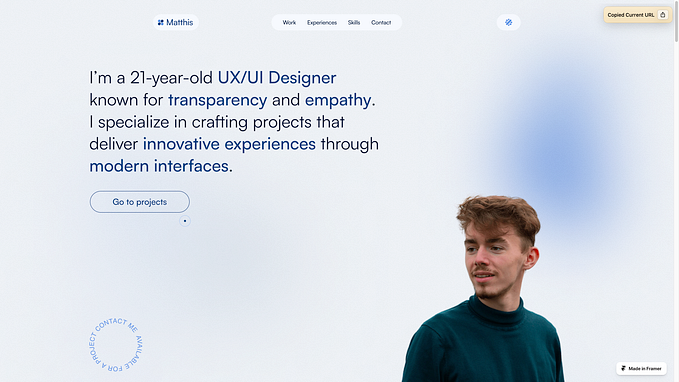
So you want to break into UX but you don’t know where to start…
“Can I get my foot in the door in UX? All the job openings specify years of experience, but I don’t have that … and I don’t really know where to start.”
Yes, it does seem to be tough to break into UX these days. I might be reading the situation wrong, but what I’ve seen and heard recently is that there are lots of new UXers graduating from bootcamps, which creates a glut of supply at the junior level. Meanwhile, the job market is hungry for seniors.
I’m not saying that to discourage you from trying. I just want to set the stage.
Your mission – should you choose to accept it – is to make it through the dense throng of people applying for every junior role. Your challenge is to stand out. To avoid looking like every other person trying to break into UX.
Here’s the secret:
As far as I know, there is still no fixed UX career roadmap – no well-trodden career path that takes you smoothly from graduate program to executive partner.
This is great, because you don’t have to have done all the “right” things or been to the “right” places.
But it’s also tough, because there is no answer to the question about where to start.
So instead of trying to answer an unanswerable question, I’m going to push some questions back at you. Strap in.
1) What does UX involve for you? What about it attracts you? What about it concerns you?
There are lots of facets to UX work these days, and every UX role is different – from research to wireframes to workshops to writing … to a glorious potpourri of all of it at once.
You need to know why you really want to work in UX, so you can find the right flavours of role.
Are there aspects of UX that particularly attract or repel you? What gets you jazzed up? What are you not that interested in?
2) What have you done to test your idea that you want to work in UX?
How have you tested your answer to question 1? Have you considered that you might snag your coveted UX job only to find out that the reality of the work is nothing like your expectations?
For instance, I devoured UX books, made websites and usability tested them for years before anyone paid me to do it, just because I was fascinated.
How many friends have you interviewed? How many wireframes have you sketched? It costs next to nothing to usability test a random website with a family member.
If you haven’t tried anything yet, what’s stopping you? Are you sure you want to do the actual work of UX? Don’t make the mistake of waiting for permission. There are design problems all around you, not to mention people trying to get side-projects off the ground who might value your brains and hands.
3) You might be low on UX skills, but what other skills make you interesting?
UX people benefit from being cross-functional. This is clear from the many heated debates: Should designers code? Should designers write? Should designers collect underpants?
There’s no right answer to these questions. But I’d argue that designers should have interests and skills outside of design. It really helps. I’ve secured more than one job because I also teach Lindy Hop and understand Frequentist vs Bayesian statistics. (Also you should see my underpants collection.)
What non-design skills make you different?
4) How can you use your covering letter and CV to tell a story of your inevitable UX excellence?
So now we know you’ve got unique experience and skills. How can you weave those into a story that points you at UX and shows that your perspective is valuable?
Consider your story from the business’ point of view: how can you show them you’re keen, smart and get things done? (Notice how this loops back to question 2?)
5) How might you meet other people in the UX and business world?
I’m afraid that who you know still matters. But let’s apply UX thinking to the problem of how to meet people…
How might you get people who can hire you to notice and consider you? Hint: it will involve talking with them. OK, so where do they hang out? Think online as well as in real life.
Are there Meetups near you? If not, what about online communities? Designerhangout.co is thriving, while Candles is explicitly for junior UXers.
Then how might you find out what you need to know? Just like in all UX research, humans can’t simply give you the answers you want. Get ready to dig deep.
6) How might you get past the hiring gatekeepers at organisations?
Many gatekeepers tend to have simplistic criteria for rejecting resumes based on looking at years of experience and academic degrees. I’m afraid these won’t play in your favour at first.
But we’ve already thought about how we can present you as having valuable experience.
Perhaps you can even get past the gatekeepers by meeting the right people. Many of the best opportunities don’t come through official channels.
7) THE BIG QUESTION: what’s the smallest meaningful step you could take right now towards testing the career path you’re considering?
It’s not to read or watch videos. It’s to take action.
What’s the smallest thing you can do today that might get you a tiny bit closer to answering your question: “how might I get my foot in the door?”
UX is about action as well as learning and thinking. Change something and see what happens.
Think of it as making a prototype of your new career path so you can test it in the wild. This is UX design applied to life.
Get started. If you have no ideas, simply try writing the problem out 20 different ways.
More resources
Having just said, “don’t read more,” I’m now going to recommend a fabulous book. It has nothing to do with UX and everything to do with your career. Don’t like books? It’s mainly pictures and it only takes about 20 minutes to read. Get it.
Lastly, I’m also going to suggest a few episodes from the very excellent “What Is Wrong With UX?” podcast (thanks Laura Klein and Kate Rutter!) that will be interesting for you to listen to:
Bias towards action
Your goal is to get your foot in the door.
What’s a small step you can take right now to move your foot slightly closer to the door?
If you liked this piece, get your paws on more of my writing over at https://tomkerwin.com/
Thanks to jorunn and Corissa Nunn for help editing this.







